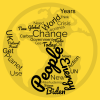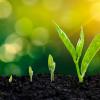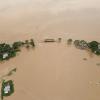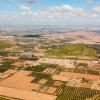
Dmitry Erokhin, a researcher at IIASA, presents a study on climate discussion on Twitter at a pre-conference organized by IAMCR. Analyzing over 250,000 tweets, the study reveals dominant topics and sentiments surrounding climate change. While concerns and calls for action prevail, the study also uncovers significant misinformation alleging climate change as a hoax. Erokhin emphasizes the need for targeted information campaigns to counter these narratives. The findings hold crucial importance for policymakers navigating the social media landscape.
Dmitry Erokhin, Researcher at the IIASA Cooperation and Transformative Governance (CAT) Research Group, presented his study titled “Climate Discussion on Twitter” in collaboration with Nadejda Komendantova, the Leader of the IIASA CAT Research Group, at the Climate Mis/Disinformation in a Post-Factual Era Pre-Conference organized by the International Association for Media and Communication Research (IAMCR) on July 8, 2023 in Lyon, France.
During his talk, Erokhin shed light on the prevailing topics dominating climate-related discourse on Twitter, as well as the sentiments expressed within these discussions. The study's findings were based on an analysis of over 250,000 tweets, providing a valuable snapshot of the ongoing dialogue surrounding climate change on the popular social media platform.
In an era where social media has become a vital instrument for climate engagement and activism, real-time analysis of discussions holds immense importance for policymakers. The ability to identify dominant topics and potential misinformation in a timely manner empowers decision-makers to address and counter misleading narratives effectively.
“While concerns about climate change and calls for increased action were found to dominate the discussion, we cannot ignore the significant presence of misinformation alleging climate change as a hoax. These narratives purport to establish a totalitarian society and control us,” stated Dmitry Erokhin. “The existence of such misinformation underscores the urgent need for targeted information campaigns to address and counter these narratives.”
The pre-conference “Climate Mis/Disinformation in a Post-Factual Era” was hosted by IAMCR’s Political Communication Research Section in collaboration with the MediaFlows research group. The pre-conference served as a meeting point for expanding on IAMCR’s debates on the challenges that inhabiting the planet pose to Political Communication, with a focus on environmental accountability.
To read more on the pre-conference https://www.climatedisinformation.org/presentation/
The International Association for Media and Communication Research - IAMCR - is the preeminent worldwide professional organisation in the field of media and communication research.
To read more on the IAMCR https://iamcr.org/iamcr-profile
The study has been supported by the EU-funded AGORA project, which aims to enhance collective resilience against climate change by establishing community-based adaptation practices in various social, economic and political contexts.
To read more on the AGORA https://adaptationagora.eu/
News

02 April 2024
CROPS: a new EU-funded project to grow citizen science in Europe

27 March 2024
Rising waters and sinking communities: exploring the scope for transformation and resilience in riverine Bangladesh

28 February 2024